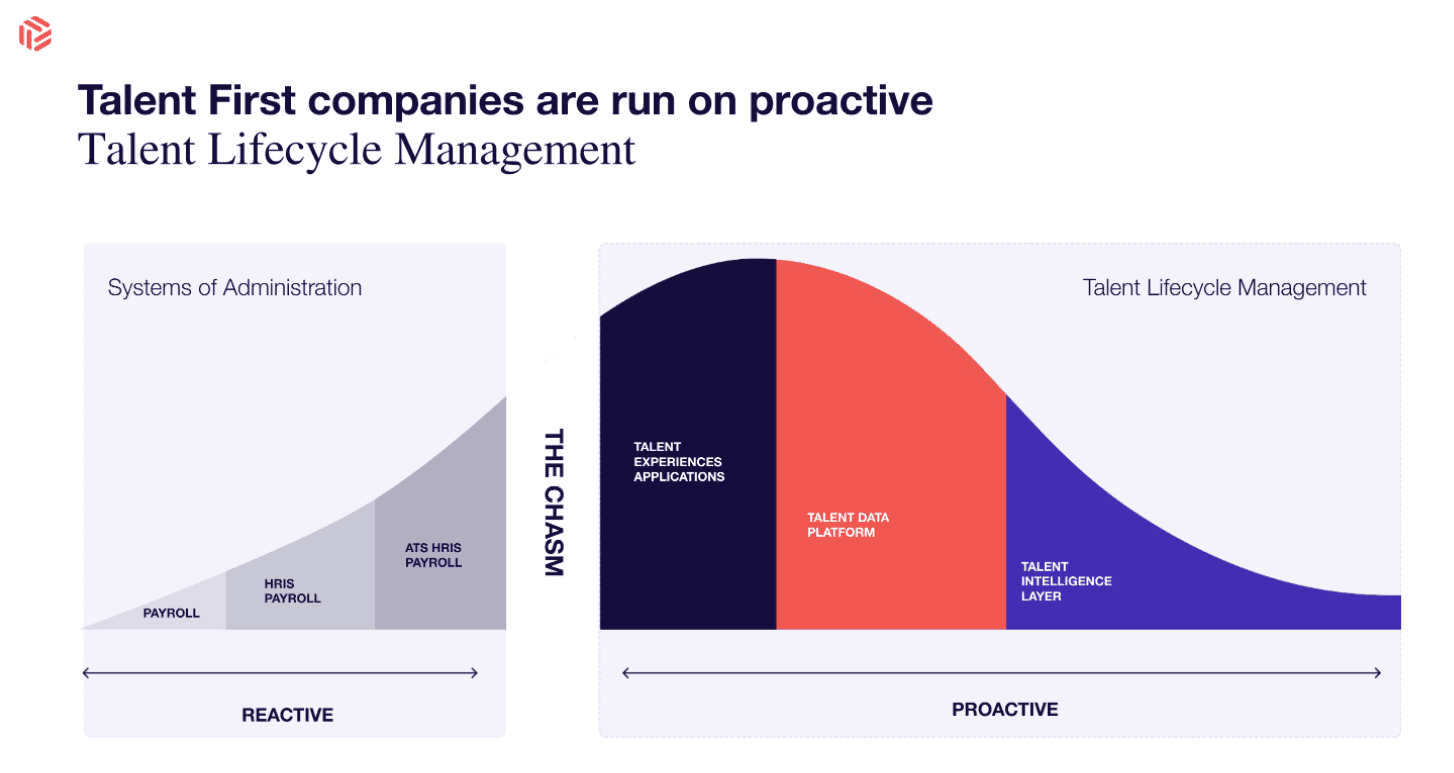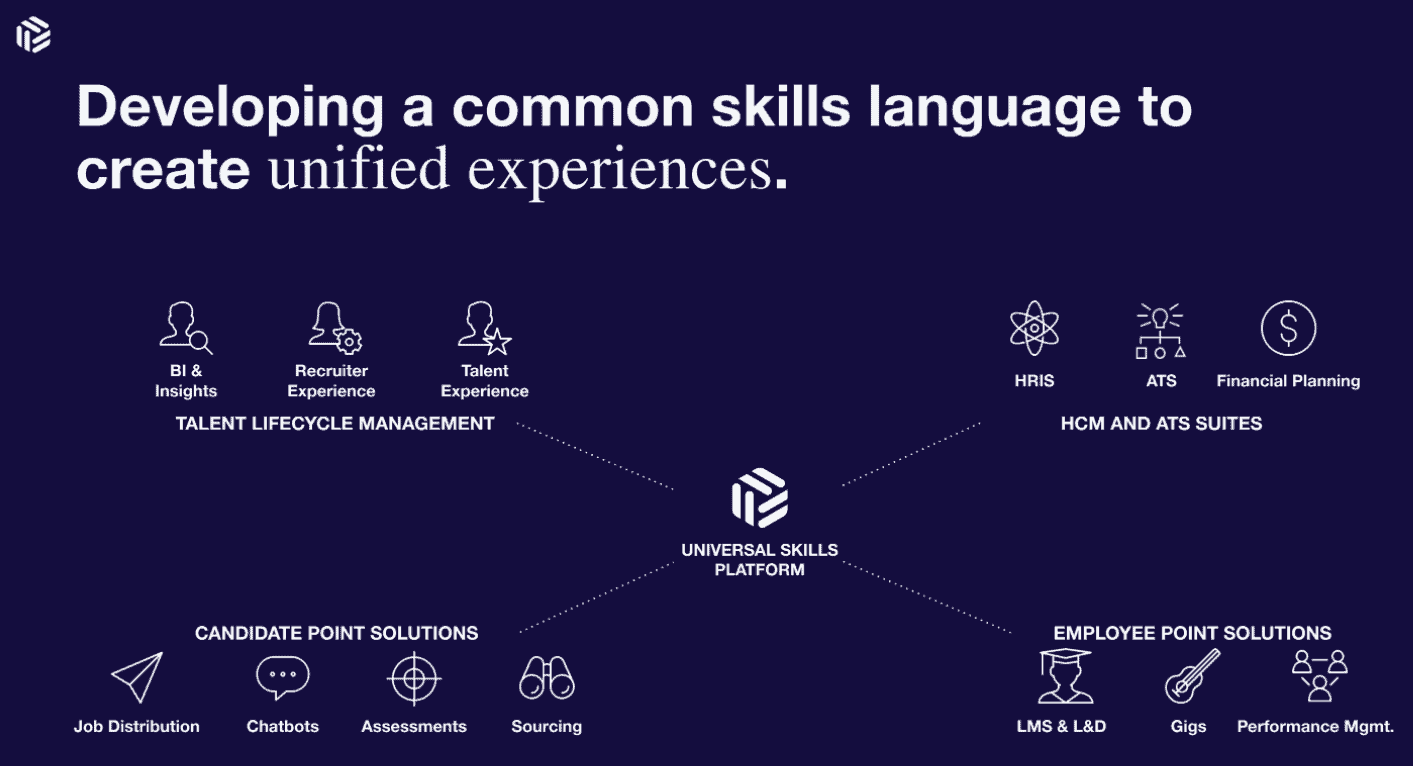Beamery Acquires Flux: A New Type Of Talent Marketplace
The Talent Marketplace space is red hot. Driven by the hot job market, companies are snatching up tools to improve internal mobility and the Talent Marketplace segment has become essential.
This space, pioneered by vendors like Gloat and Fuel50, was designed to use AI and skills inference to help employees find internal jobs, roles, projects, and mentors. These platforms work exceedingly well (I haven’t talked with a single company that didn’t find success here) so vendors like Eightfold, Workday, Oracle, PeopleFluent, Hitch, and SuccessFactors have all jumped in.
The leading vendors (Gloat is the leader at this point) have intelligent platforms that can import employee profiles, identify skills from experience and resumes, and instantly recommend new positions, projects, and mentors. They then go further and create a company-wide skills taxonomy that can be used for internal development, skills assessment, and eventually workforce planning.
Initially designed to create “Inner Mobility” (Gloat’s original name) or “Career Paths” (Fuel50’s pioneering), these are now all-in-one employee experience platforms that pinpoint learning, help recruiters head-hunt internal staff, and help managers staff teams. Companies like Schneider Electric use these platforms to help managers “staff and organize teams” and even let employees find mentors, create career plans, and plan their personal development.
In other words, the Talent Marketplace platforms are eating everything around them. They’re starting to look like Learning Platforms, Recruiting Platforms, Talent Intelligence Platforms, and more.
And this is all good stuff. Right now companies find it difficult to identify the skills they have, the skills they need, and the location and fit of job candidates for open and new positions. The Talent Marketplace, once actively used, has the potential to help with all these issues. Hence the reason big vendors like Workday, Eightfold, and Oracle are in this space.
Enter Beamery, a company well known for the Candidate Relationship Marketing (CRM) platform.
Beamery is a pretty cool company. The first time I saw it I was more or less blown away. Similar to Eightfold, Beamery is a “data platform” not simply a software system. The company imports tens of millions of employee profiles and indexes them to find job candidates, fit people to new roles, and create high-powered recruitment marketing programs. And it also does things like identify who is in your existing candidate database so you can find “silver medal” candidates as hiring gets tough.
Beamery has been very successful. Workday Ventures and Accenture Ventures are investors and many big companies (Wells Fargo for example) use Beamery for their sourcing, campus, talent attraction, and candidate marketing processes. And this is now very strategic. Our new research The Definitive Guide to Talent Acquisition discovered that brand reach and candidate marketing is now the #1 factor in attracting job seekers, so Beamery is an important system.
So what’s new? Beamery just acquired an exciting company called Flux (most of you don’t know them) which has been building a groundbreaking new talent mobility system. The combination of Flux’s platform with Beamery makes the company highly competitive with the likes of Gloat and Eightfold and lets companies combine internal and external resourcing in a single platform
I won’t try to explain all that Flux does, but let me point out that it was built with Uber as a design partner, focused on using AI to find internal and external candidates for full-time, part-time, and gig work. It also gives employees control over their own development and careers with intelligent job, learning, and mentorship recommendations (similar to other talent marketplace vendors).
In addition to using a skills inference engine (which most of these platforms have), it also embeds a proprietary “Job Fit” assessment. What this does is essentially diagnose your personal interests, behaviors, and aspirations and helps you find “the right fit” rather than just “a job that leverages your skills.”
This is actually a pretty big deal. A typical skills system might suggest that “because you have an engineering degree and work as a software engineer you probably would be interested in a cyber-security job.” But in reality, you might be tired of engineering and really want to become a team leader or executive coach. A skills engine would never know this, but Flux would figure this out.
While there are other such assessments on the market, by embedding this into the Talent Marketplace, Beamery lets everyone in the company understand their thinking, working, and interaction style. SuccessFactors new People Model does this, but no other vendor really offers this type of functionality. You can buy a third-party assessment, but with Beamery and Flux this comes out of the box.
A large enterprise in the transportation sector reported using Flux very successfully, enabling it to place thousands of employees in full-time, part-time, and gig positions.
How does this fit into Beamery’s business? The company is positioning this as Talent Lifecycle Management, a single platform to manage candidates, employees and alumni. As you can see, Beamery sees itself in recruiting, internal mobility, and Talent Intelligence all in one.
 |
And Beamery has something else up its sleeve. Understanding that the “skills engine” market is crowded and fragmented, the company wants its skills system to be a “hub” for others. While I haven’t seen how this works, Beamery designed its system to “translate” skills taxonomies from other systems, not necessarily to be “the single skills system of record.”
 |
This, by the way, is what many other skills vendors are trying to do since most skills engines focus only on one part of the problem. Beamery, like other recruiting vendors Eightfold and Phenom, has a lot of experience inferring skills because of its large data set. So Beamery’s strategy, similar to that of Eightfold (and soon Gloat), is to let you add any type of data into the system – documents, email traffic, and other information that infers and validates skills.
In summary, Beamery is entering a very hot and exciting space.
In the last few weeks Gloat introduced its Organizational Agility (talent intelligence) and Opportunity Hub (third party content marketplace). Eightfold has expanded into vertical talent intelligence, intelligent job architecture, AI-enabled succession management, and new learning solutions. And other vendors keep piling on. So while Beamery has a pretty impressive system, they also have plenty of competition.
I will be discussing all this at our Irresistible Conference (May 23-25 in the beautiful USC campus) and explain how all this comes together. Please come join us to learn much more.
Additional Resources
The Mad Scramble To Lead The Talent Marketplace Market
Eightfold Now Valued At Well Over $1 Billion
Update From The Workday Innovation Summit: Lots Of Growth Ahead
Irresistible. The Global Conference for HR Leaders and Their Teams
